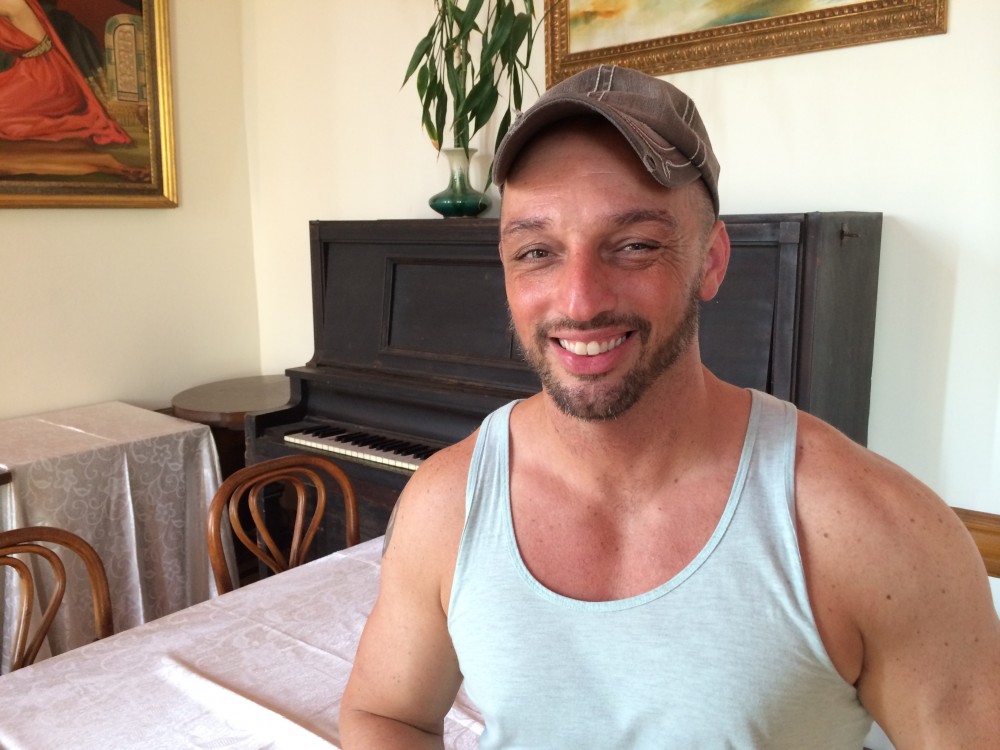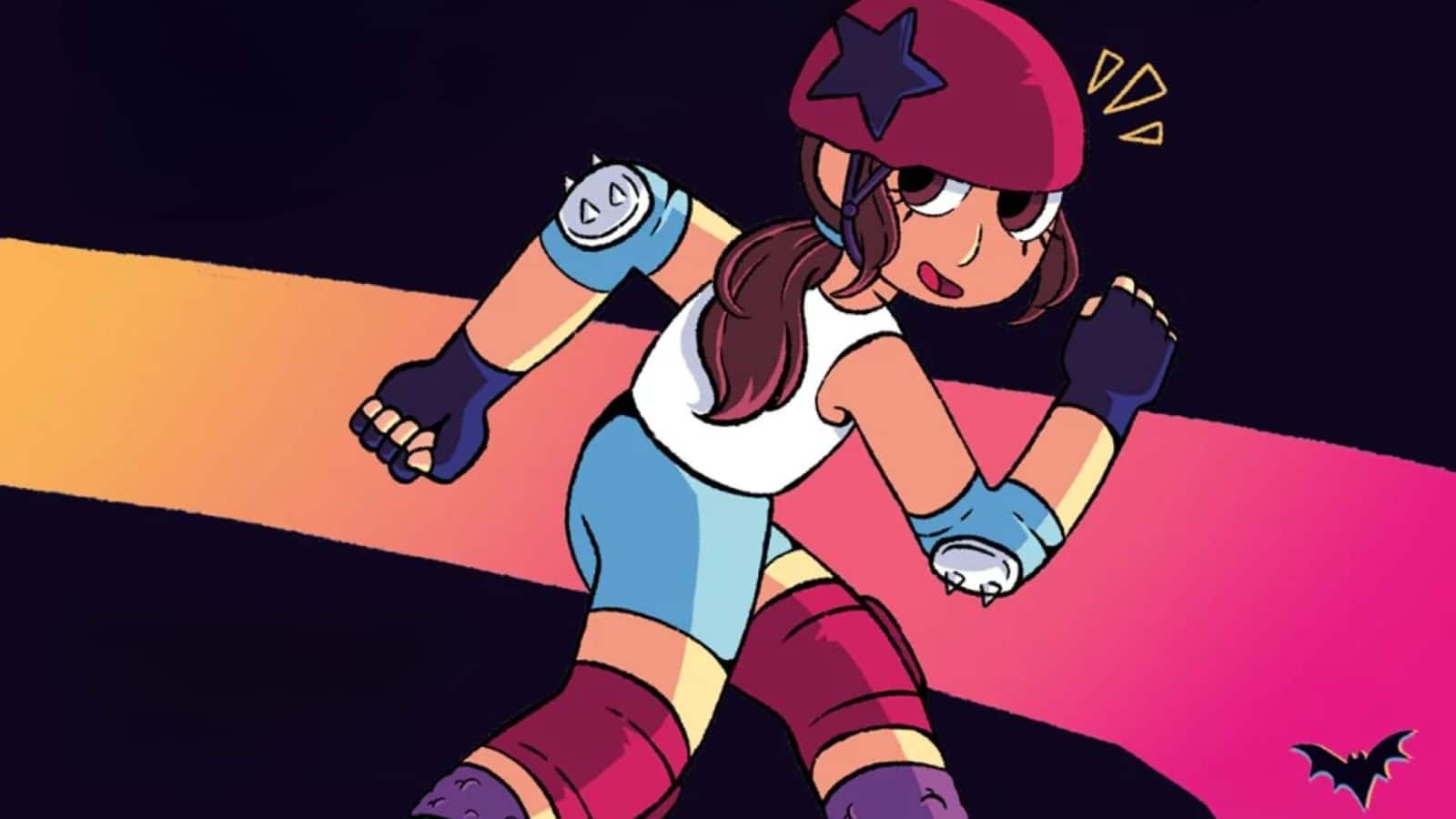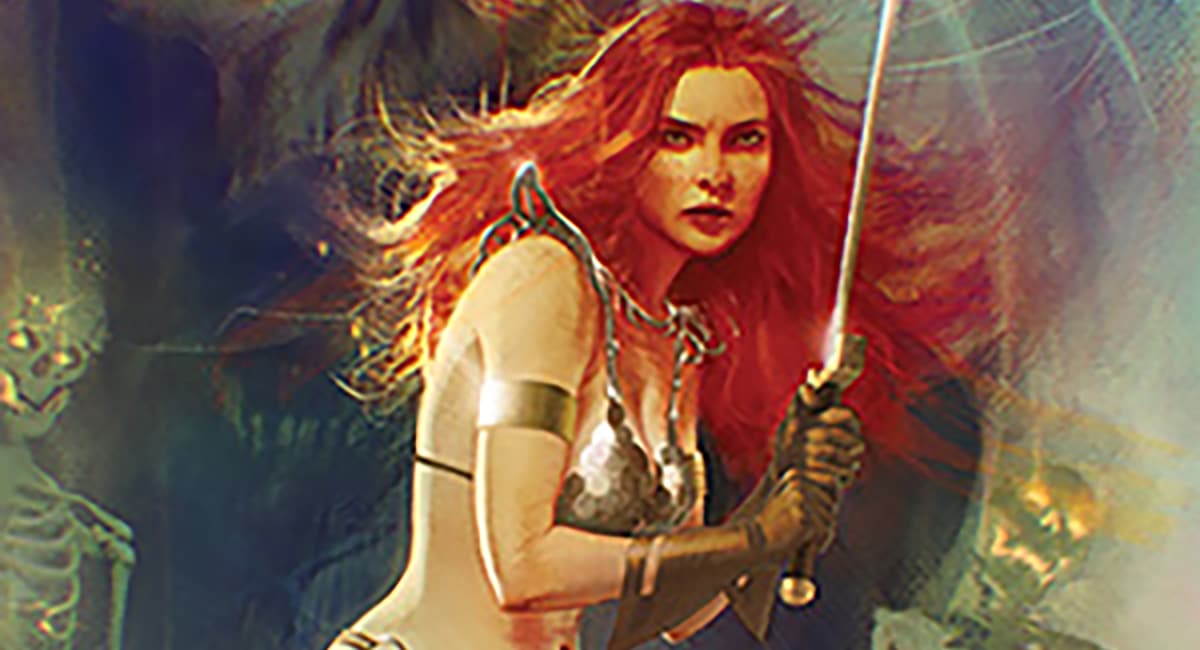June was a historic month for the gay rights movement that saw the United States Supreme Court rule in favor of legalizing same-sex marriage on June 26, 2015. Earlier that month, New York City queer comic fans celebrated the debut of Flame Con: the first LGBTQ focused comic convention in the city. We caught up with Flame Con special guest Phil Jimenez (Wonder Woman, New X-Men) on the upper balcony of The Grand Prospect Hall in Brooklyn, NY and talked about gay comic fandom, the many faces of Wonder Woman and why Midnighter leaves him cold.
What attracted you to come to Flame Con?
I was invited to come to Flame Con because of GeeksOUT; I’ve known the organizers for a long time.
You do? How do you know them?
Huh. That’s a good question! I’m assuming it’s because of the gay nerd community/gay geek community in New York City? We’ve all met each other through different functions at conventions etc.. I was actually drawn in on the sideline by Joey Stern; a really good friend of his Dave Hughes, someone who’s been a friend of mine. Dave and I were going to work on a comic but it didn’t work out. So I think through Dave I met Joey and the whole crew. That’s a terrible answer, because I don’t truly remember. I think, as their organization formed, I was friends with their members and they invited me to various functions.
There was a group in the 90’s called The Gay League, that was an AOL group formed by Anton Kawasaki, it’s run by Joe Palmer now. It was a group of men, of mostly gay men, who would meet on comic book Wednesdays and have pizza and hang out and talk about our comics. It feels like that was one of the big original New York groups. Some of our big dinners could have forty people, and those splintered off into these other groups. And I think as younger people came they created their own. And GeeksOUT was one of them.
But I think it’s kinda neat, because I’m hearing this history of that kind of free-form stuff, and now it’s being more codified, and then you have where we’re sitting now.
It’s amazing! This is the result of that, this entire convention is the result of that. It’s extraordinary.
1500 people are here (I was referring to pre-sold tickets figures: the number that actually attended rose to 2,200 according to Flame Con organizers), pretty good for a first time out!
And I figured, like 1200? So that’s wonderful. And what I love is that people are here for a very specific reason, so they’re looking for a certain kind of representation and finding it in the material. And they’re able to talk to creators, and creators are able to talk to consumers who have this shared experience. And so it’s becomes a really sort of personal, kind of almost loving space, which I like.
There’s an amazingly good vibe happening here.
Super good vibe!
What do you think about comics books specifically appeals to LGBTQ communities?
First, I think because there are elements of the fantastic, and comic books — particularly superhero comics — are certainly queer and sexualized in ways I’m sure their creators aren’t even aware of. There’s an off-ness to them, and certainly historically there was a sidelined-ness to them before they became sort of main streamed things, that I think appealed to those people on the periphery. Secondly, you have idealized figures. I mean, this isn’t my experience, but you have superhero figures — men running around in tights – I just spoke to some people for whom that was a primary appeal.
For me, it was the fantastical nature of these things. Growing up in suburban USA the grandness and the epic-ness of their adventures appealed to me. The escapism, and they were these huge sort of drag queens, they’re larger than life, they have costumes –the thigh-high boots and capes — and they have these code names and then they have these powers. It’s all fabulous. So for me that was my entree. I know for other people, particularly a generation of gay men, who got into X-Men because of that difference metaphor, and that metaphor of otherness.
So let’s talk about Wonder Woman for a second. So she was actually pretty progressive when she was created –
Agreed.
…but she didn’t really continue on that trajectory. So what do you think is the future of this character? Or should be the future?
I have strong feelings about what I think the future should be and what I think it will be. I think she’s currently in a space where she is very salable. And the interesting thing is, I just spoke about this at a queer academic conference, that one of the things that fascinates me about Wonder Woman, is how she went from being an essentially anti-war, progressive, queer character to the goddess of war, to the representation of war. She lost much of her queerness along the way, and that is easily more salable to the public, right? So a woman who is inherently female, from a female Utopian society, who represents progressive values, and anti-war is not particularly salable.
What’s interesting, what I’m really curious about, is the LGBTQ relationship to war and the language of war, because a lot of gay men I know are really into the sort of warrior version of her. And when I challenge this by saying that I don’t have a particularly idealized or nationalized or romantic idea of what war is, and that this character represented the opposite of it, which is love — some how that is perceived as weak. But war seems effective to people. That she is the most effective when she has a sword and shield and she’s in battle.
Effective meaning that they respond to it more?
Yes, they respond to it. Effective from a commercial standpoint, effective from a visual standpoint and, in some ways, a metaphor standpoint. So it makes me think about the LGBTQ community and its relationship to the language of war itself, and how it’s so often in a war with conservatives, a war with religious zealots –
And with yourself.
Yourself, right! A war with your family, the coming out. And my ideal Wonder Woman remains something much closer to the original. Which is progressive, forward thinking, anti-war, technologically advanced, crazy, zany, fun-spirited, hyper-sexual — in terms of owning sexuality, etc…
Bondage…[laughs]
I have no problem with bondage, like, whatever. Because the interesting thing to me about that is that you get this whole into this whole thing about how people have a surface-y understanding of what bondage and submission are…
The 50 Shades of Grey version.
Yes! Exactly. Super surface-y and without the understanding of trust and what submission is. I could babble on. But I believe her future, at least the immediate future, is one where she will remain sort of a symbol of war, of a woman from a warrior culture, because that’s sort of strong and masculine. At least that’s my perception. I would love to see a version that is more like the 1940s one because I still see that as much more politically progressive.
I’m sure you’ve heard about the upcoming Midnighter series, is there anything you’re looking forward to with that? Any thoughts?
At this convention I’ve actually been sitting next to Steve Orlando, which has been very, very nice. I’m actually on record as saying that Midnighter is probably one of my least favorite gay characters in comics.
Really?
Primarily because he is a murderer, and he’s a mass-murderer.
[Laughs] Well, that’s true.
And so, it’s hard for me to champion any character — gay or straight — once they go into mass-murderer mode. They stop being resonant to me. It’s interesting that he’s so popular because he represents, or he is considered, powerful and strong and relevant because he’s a killer. And he’s allowed to sort of defy stereotype like, “oh, he might not be sort of a mincing queen.” But what he is, is to me no more appealing.
It’s sort of the other end of that same spectrum.
It is the other end of that spectrum. And, as a matter of fact I’ll take the mincing queen because at least they’re not killing people. From a messaging standpoint, I’ve always found him problematic. I get that he and Apollo are a Batman and Superman analogue, ha ha ha, like once I got the joke — but I was always troubled by their methods of operation. So, that said, Steve assures me that he’s going to take this character on a great journey. And it sounds like he’s doing a great job, and readers are responding and as long as they respond and get something out of it, that’s all that matters.
You mentioned earlier that you recently spoke at a queer comics academic conference, and now we’re at the first LGBTQ con in New York City. Do you think queer fandom is on a roll here? Will it continue to gain ground? Will it plateau? What do you see?
That’s a great question. The thing that interested me about the queer academic forum is again, I was shocked there’s never been something like that. Primarily because there are all these schools and there’s a lot of people who talk about queer stuff. I have friends who are academics, I was on it as a working professional who thinks academically sometimes about things. But certainly not trained in any formal way, so one of the things that thrilled me was this discussion about this medium from a queer standpoint through an academic lens. This is new, this is historic, and it was really, really thoughtful.
I think these shows will continue to be around for years. My hope is that they’re expansive enough so that non-queer people can come and take joy in them. Find safety in them, find stuff to do. As long, though, as there is a need I hope that they will continue. It seems to me, looking over the balcony at the enormous crowd below us, there’s a definite need — a desire– again, to see representation and to talk to people that represent you. My hope is that that continues for a very long time.
Follow Phil Jimenez on twitter.









That was interesting. I had no idea gay geeks groups existed in NY for such a long time.
I attended an open-conversation panel Phil Jimenez was on at the 2014 Bent Con and then briefly met him, he seems like such a nice guy with a positive sparkling attitude.
I’m with Jimenez in not being real big on Midnighter, but less because of the ultra-violence and more because it seems that most writers are unable to handle the character without metaphorically throwing Apollo under the bus in terms of personality and development. And promoting one LGBT character at the expense of another — especially when the two are a couple — isn’t something I’m much a fan of. Oh well. At least the Ellis back issues aren’t going anywhere.
Comments are closed.